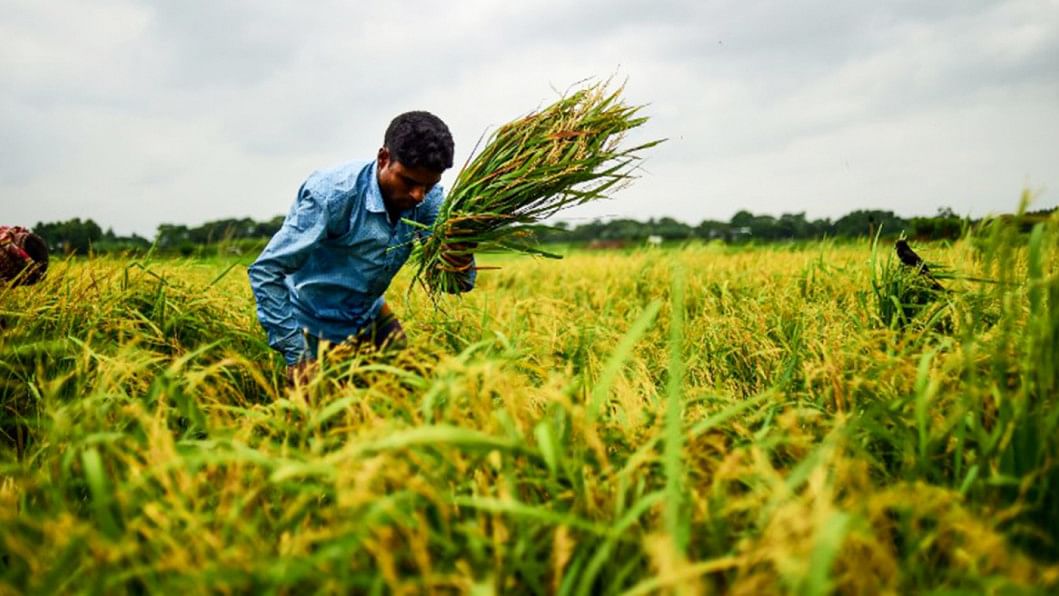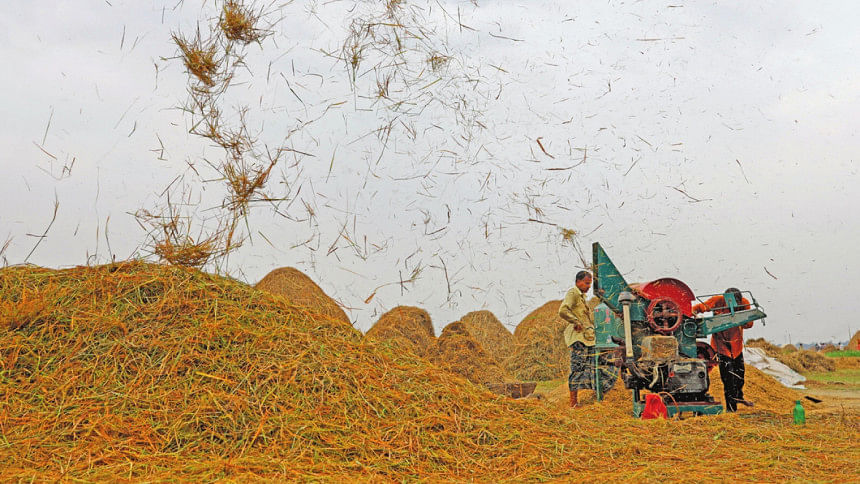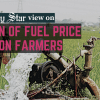Is Bangladesh ready to face a global food crisis?

Against the backdrop of a severe economic crisis manifested through high inflation and an energy crisis, the world must confront a growing problem of food shortage. We face the real risk of massive hunger and famine. The Covid-19 pandemic disrupted economic activities and the supply chain, leading to people losing their employment and source of income. Consequentially, consumption declined at the household level, particularly in low-income families.
On the heels of the pandemic, the Russia-Ukraine war broke out, worsening the global economic situation. Ukraine, an important source of global food supply, used to be called the world's breadbasket as several countries relied on the country for wheat. But food exports from Ukraine have fallen since the Russian invasion. As a result, countries have had to import food from elsewhere, which has pushed up transportation and logistical costs as well as delivery time, causing food prices to skyrocket. The effects of climate change have disrupted harvests around the world, while the risk of changing weather events due to climate change has also intensified. As a result, the world is now headed towards an unprecedented food crisis. The Food and Agriculture Organization (FAO) of the United Nations has projected that crop and food production will decline by 1.4 percent globally.
When there is a food crisis, countries resort to protectionism. This was observed recently when a few countries banned exports of their food products. The spirit of global cooperation gets lost in the urgency of saving one's own people. The rules of the multilateral trading system also get diluted during such a crisis.
Bangladesh's growth in agriculture since independence has been significant. Growth in yield and output of cereal production has helped the country to become self-sufficient. Access to food has also grown on average, despite an increasingly large population and a small area of land. Due to the diversity in diet that includes protein and vegetables, the nutritional status of Bangladeshi population has increased, and stunting, underweight and wasting have gone down. The Multiple Indicator Cluster Survey (MICS) 2019 by the Bangladesh Bureau of Statistics (BBS) and Unicef reveals that chronic malnutrition, which is measured by stunting levels, declined to 28 percent in 2019 from 42 percent in 2013. Food availability has increased due to the Green Revolution that the country experienced over the decade. Government policies for the agriculture sector have helped to achieve such a revolution. Therefore, Bangladesh could avoid hunger and famine.
However, the FAO projection is alarming for Bangladesh. According to FAO, Bangladesh is among the 45 countries that will face a food crisis. Therefore, a strong and inclusive food system should be built. During the pandemic, agricultural production and supply systems in many countries were disrupted. But Bangladeshi farmers were able to grow a good harvest of rice. A few measures are urgently needed to tackle the incoming crisis in such circumstances.

First, with high fuel and fertiliser prices, farmers now find it difficult to grow food; so there should be subsidies for food production. The government should ensure that small farmers receive such subsidies. During the pandemic, the government provided Tk 5,000 each for farmers, but many did not receive that due to formalities needed at the banks. Now with the increased cost of production, farmers will have to be ensured a fair procurement price for their produce. Without better prices, farmers will not be encouraged to produce food, which will further worsen food availability. In Bangladesh, cultivation is mostly done by using power tillers and tractors, which are diesel-operated. Since the government has increased fuel prices to a record level, which is hitting all sections of the population hard, it should provide subsidies on diesel so that farmers can cultivate and maintain the food stock needed for the country. In case of fertilisers, not only the price but availability, too, is a concern for farmers. The government must make fertilisers available at affordable prices for them.
Second, it is a good sign that the prime minister has urged for higher food production and not to leave even one inch of available land uncultivated. Our policymakers are understandably worried. Higher crop availability will require higher productivity. Though agricultural yield per acre in Bangladesh has increased over time, it is still lower than many food-producing countries. For further increase in yield, higher investment in innovation and development is required. Technological innovations are necessary to improve productivity and sustainability in the agriculture sector. Our scientists have invented several varieties of rice, including the water-tolerant ones. They can also find innovative ways to increase yield and utilise land more productively.
Third, even if there is more production, storage facilities are inadequate in the country, due to which food cannot be stored for long. So, the government should build more storages and procure crops from farmers at a fair price, so that their cost of production is well covered, and they can have a profit margin. Without a good price, farmers get discouraged for the next season, which fuels the food crisis. It is a vicious cycle.
Fourth, though the whole world is now looking for food, Bangladeshi policymakers must also immediately arrange for importing the required food to have a buffer. The market should not be controlled by a small number of food importers, who then control the price. It is a common phenomenon that during a crisis, only a small number of players take the opportunity to mint money at the expense of the common people's struggle to survive in an inflated market.
Fifth, poor and low-income families should be supported during this critical time. Adequate food should be available in the open market at affordable prices. The vulnerable people need direct cash support so that they can buy food and do not go hungry.
Finally, there is a need for appropriate policies and strong institutions for procurement, marketing, and distribution of food to ensure food security. Broader reforms are needed in case of land, pricing, subsidy and fiscal policies to have a modern agriculture sector. Therefore, tackling food insecurity and avoiding hunger and famine require not only good agricultural policies, but good macroeconomic and sectoral policies as well.
Dr Fahmida Khatun is executive director at the Centre for Policy Dialogue (CPD). Views expressed in this article are the author's own.


 For all latest news, follow The Daily Star's Google News channel.
For all latest news, follow The Daily Star's Google News channel. 







Comments